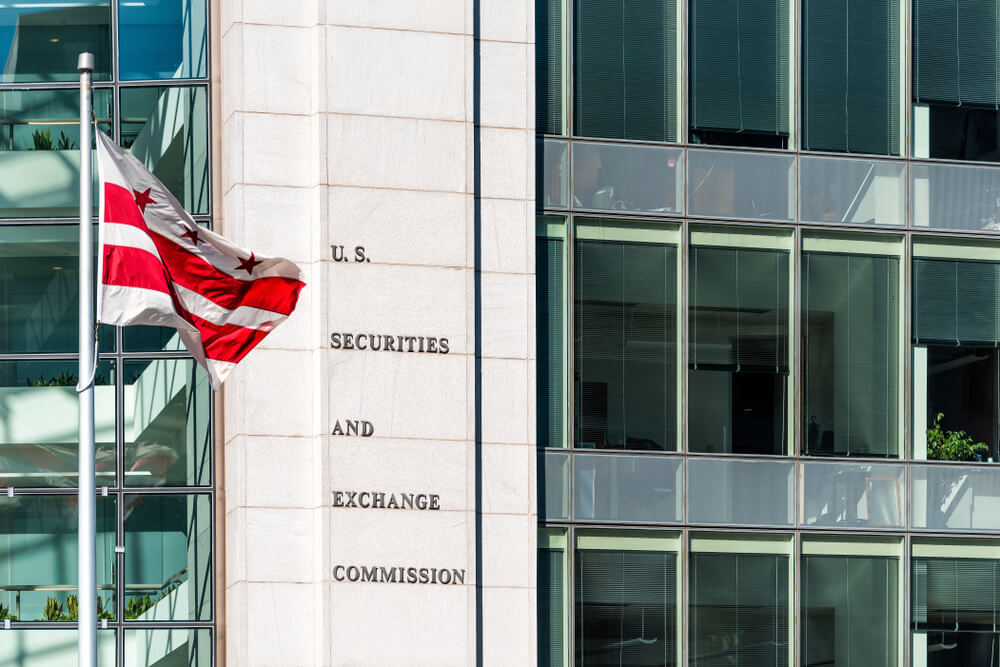Healthy and functioning markets depend on transparency and accountability. Impact investors have long understood that this extends to a need for information on companies’ behavior and impact on the world around them. Now, amid the growing urgency of the climate crisis and the cost of inequality, regulators are taking notice too.
A set of corporate disclosure rules on climate change and human capital management are expected from the SEC as early as March. While the details remain to be seen, we are optimistic that this will represent a monumental step forward on the path toward an economic system that better accounts for the impacts on all stakeholders.
We asked experts from across the impact investing and advocacy space to weigh in on what they hope to see and what this means for the field as a whole.
To learn more and hear from climate and human capital management experts, be sure to tune into The Call on Tuesday, February 22 featuring the U.S. Impact Investing Alliance and ImpactAlpha in conversation with Satyam Khanna (former senior policy advisor for climate and ESG at the SEC) and Cambria Allen-Ratzlaff (Corporate Governance Director for the UAW Retiree Medical Benefits Trust; Co-Chair of the Human Capital Management Coalition).
How will these new corporate disclosure standards contribute to inclusive economic growth?
“Demonstrating and tracking company progress in contributing to inclusive economic growth requires measurement and disclosure that is comparable and consistent. The SEC’s disclosure standards will enable investors, policymakers and the public to understand the full effect of a company’s value creation, and recognize and reward those companies whose actions are profitably delivering positive social and environmental impact as part of regular business activity.” – Meredith Sumpter, Coalition for Inclusive Capitalism
“Disclosure will support all companies being rightfully rewarded in the marketplace that perform authentically on ESG. We look forward to requirements being highly inclusive to allow all businesses, especially SMEs, to improve transparency and accountability throughout their value chains.” – Ali-Reza Vahabzadeh, American Sustainable Business Network ESG & Corporate Transparency Working Group
What will these new rules mean for impact investors?
“Investors rely on consistent and comparable data to make well-informed investment decisions, so this push towards more transparency in the financial markets is a positive one. Given the SEC’s mission to “protect investors” and “maintain fair, orderly, and efficient markets,” it will be important for disclosures to not only address idiosyncratic risks to portfolio companies’ financial performance, but also illuminate systematic risks that can emerge as shocks to the overall markets and therefore investors’ portfolios. As such, enhanced data on how both companies and investors (not just companies) contribute to climate risk, inequality, biodiversity loss, health crises, and other systemic issues will be valuable information. ” – Delilah Rothenberg, The Predistribution Initiative
“The economy relies on common-pool resources, including carbon sinks and a healthy labor force. Individual companies can benefit financially by externalizing costs and depleting common goods, but this can reduce diversified investors’ portfolio value. To be effective stewards, investors need the “inside-out” disclosure The Shareholder Commons propounded in our comment letter.” – Rick Alexander, The Shareholder Commons
What will you be looking for in the upcoming SEC disclosure rules on climate?
“What is appropriate and necessary in the public interest and to protect investors, who could be harmed otherwise, is complete disclosure of the greenhouse gas emissions associated with a company’s Scope 1, 2 and 3 activities—not limited in any way by materiality, which is inapplicable in this context.” – Alex Thornton, Center for American Progress.
“It is critical that the SEC pursue regulation around climate risk despite opposition from right- wing politicians seeking to protect the fossil fuel industry. Investors have made it clear that they want and need consistent, comparable, and decision-useful ESG information from their companies. Specifically, investors need a robust set of disclosures from companies about their contributions to the climate crisis, their plans to adapt to a low- carbon future, and the climate justice impacts of their business.” – Rachel Curley, Public Citizen
What will you be looking for in the upcoming SEC disclosure rules on human capital management?
“[H]uman capital…is the engine that drives our economy and allows companies to compete in an environment where ingenuity and the ability to adapt to novel technologies are the keys to lasting success. Investors must have the tools to understand how well a company manages its human capital in order to make optimal decisions about where we direct our financial capital….” –- Human Capital Management Coalition in response to the SEC’s August 2020 Rulemaking on Regulation S-K. (Join us on February 22 to hear more from Cambria Allen-Ratzlaff, Co-Chair of the Coalition.)
“We hope to see the SEC include people with disabilities in any human capital management disclosure rules. People with disabilities have long been recognized by Congress, the courts, and executive agencies as a minority group that has been subjected to a history of unequal treatment and marginalization based on myths, fears, and stereotypes. We feel it is critical that people with disabilities not be left out of any rulemaking.” – Brian Horn, Disability:IN
What comes next if the anticipated disclosure rules are finalized?
“In addition to climate information, investors are looking for a suite of ESG information including political activity and taxes. The SEC should require disclosure of all of these factors in forthcoming rulemakings.” – Rachel Curley, Public Citizen
“Mandatory disclosure ensures that better information is accessible to stakeholders, therefore driving company accountability, which in turn will lead to different decisions and improvements. But we must also rethink the purpose of the corporation to align with increased disclosure in order to see real systemic change.” – Holly Ensign-Barstow, B Lab
How should impact investors get involved?
“We encourage readers to engage with SEC comment periods on other proposed rules which may influence systemic and systematic risks, including those involving corporate executive compensation, financial engineering, fees and expenses, and conflicts of interest in both public and private markets. The SEC has been very active lately, with various sets of proposed rules. While they may seem different in scope, many are interrelated, and we urge those who are responding to think holistically about their potential impacts.” – Delilah Rothenberg, The Predistribution Initiative
Coordinated message
Indeed, the climate and human capital management proposals are likely just the beginning. Engagement around the first batch of proposals from the SEC will set the tone for the remainder of the ESG agenda. Backlash and legal challenges from those with a vested interest in maintaining the status quo are almost certain to follow the SEC’s actions.
The impact investing community should prepare to coordinate its messaging and emphasize in written public comments why corporate ESG disclosures will help protect investors by improving their access to clear, comparable and decision-useful information.
Fran Seegull is president of the U.S. Impact Investing Alliance.
In partnership with the U.S. Impact Investing Alliance, ImpactAlpha is featuring public policy updates and expert insights to help Agents of Impact engage with government to create an enabling environment for truly impactful business and investment decisions. See our full coverage at Policy Corner.











